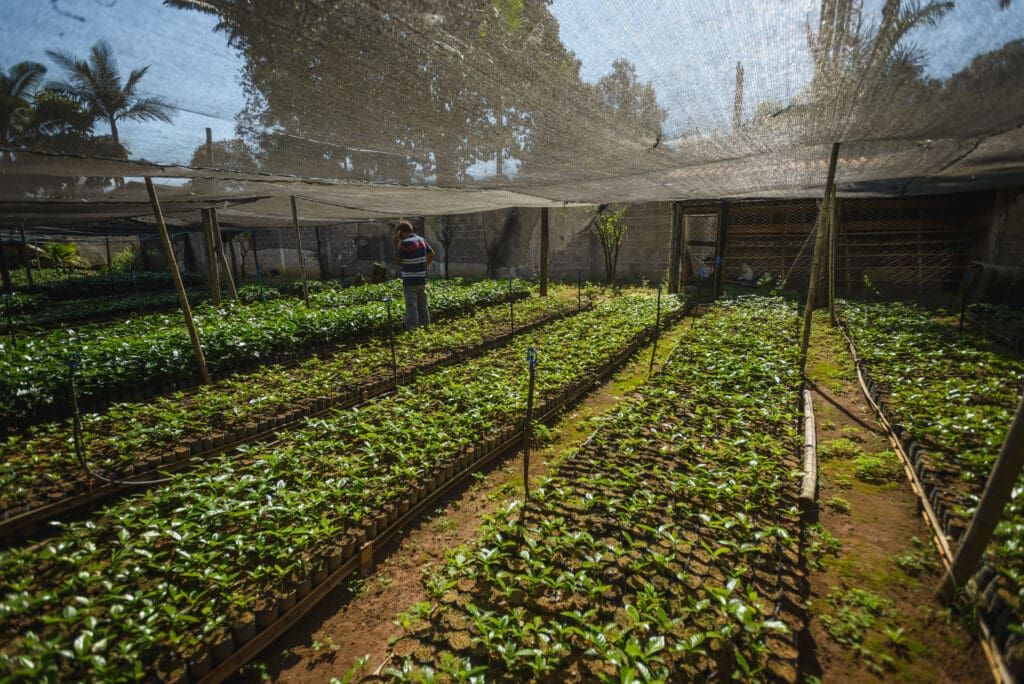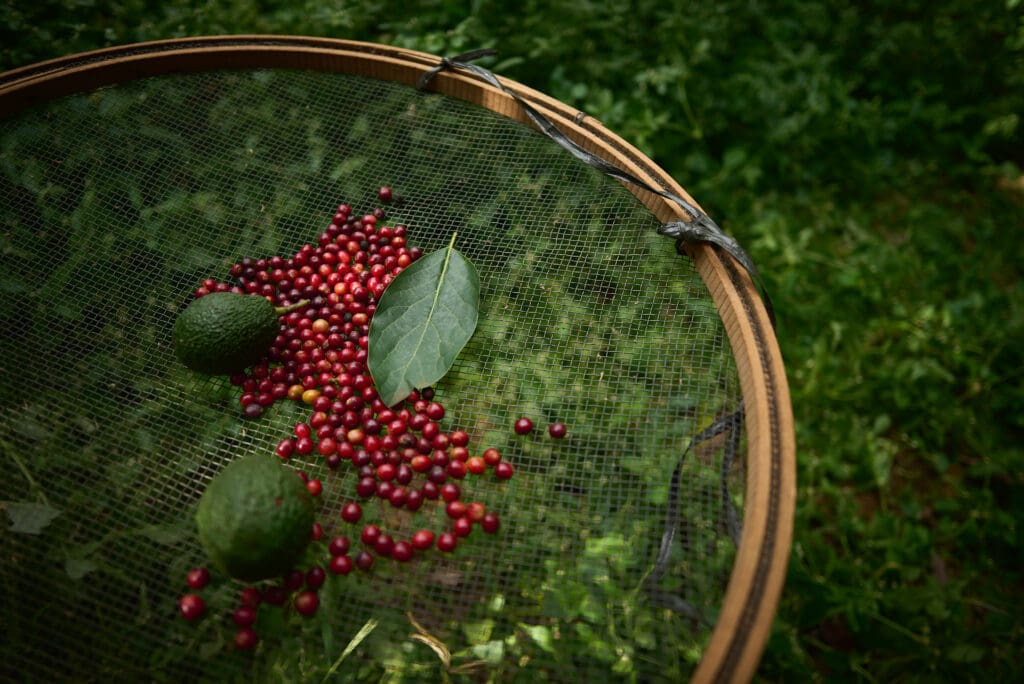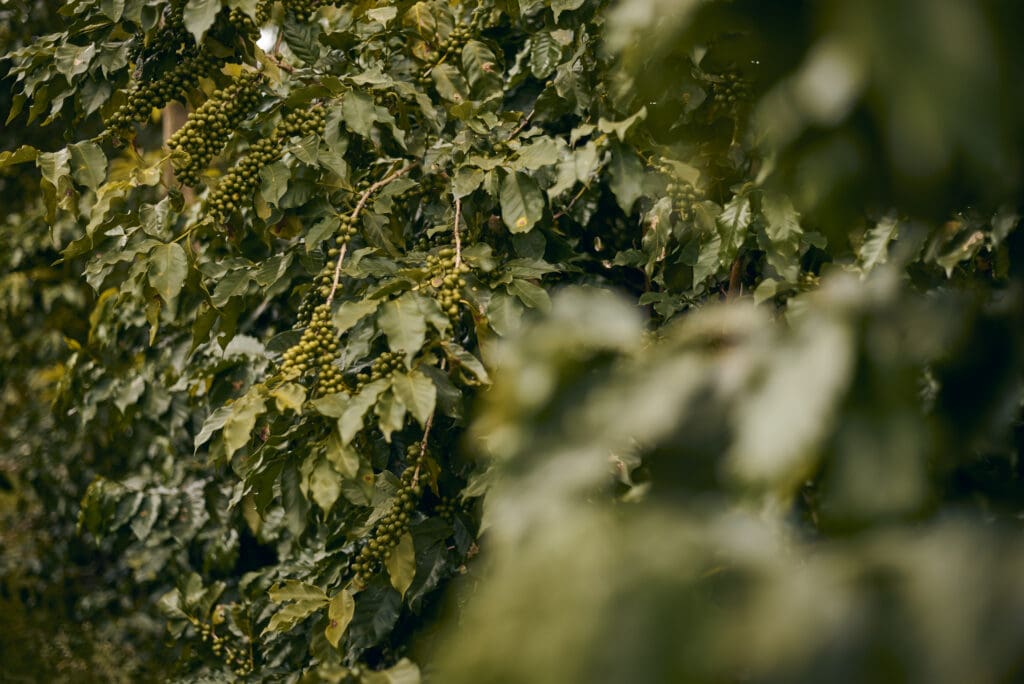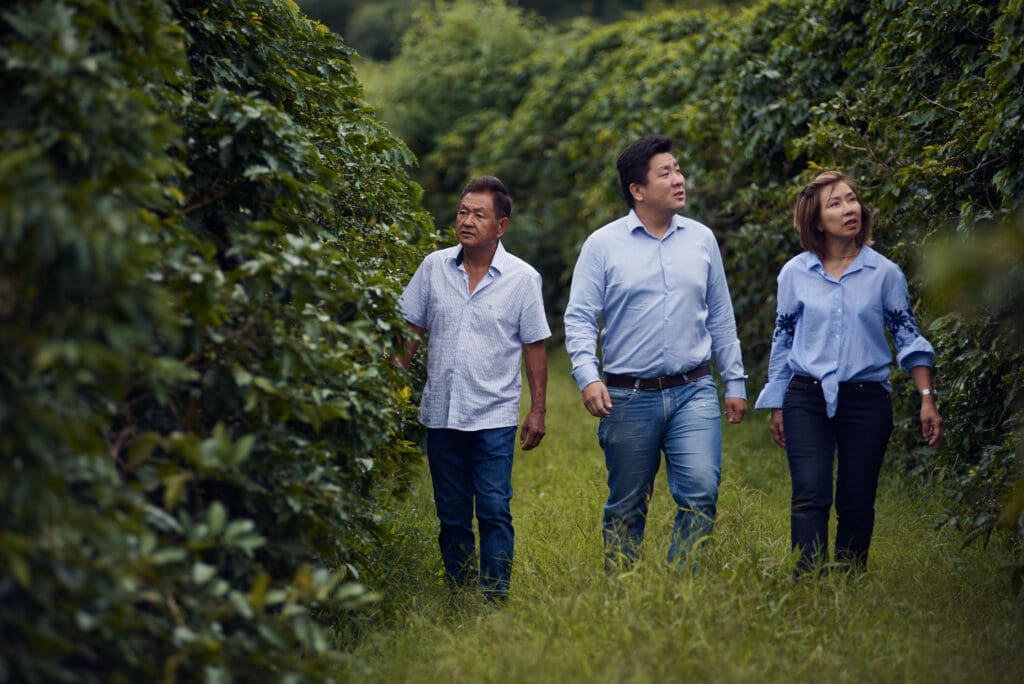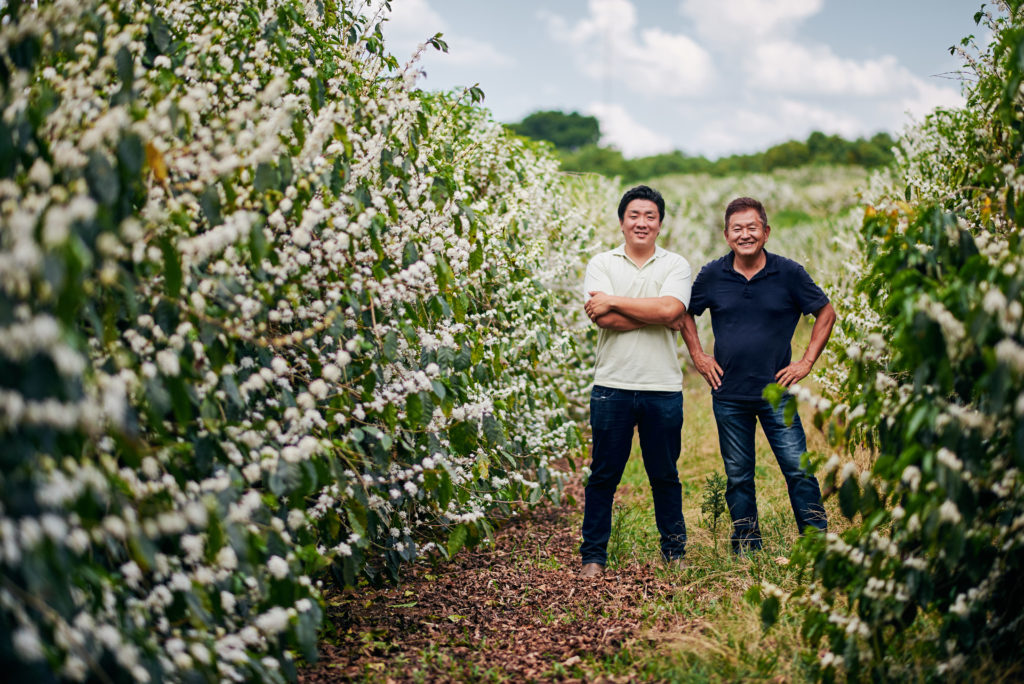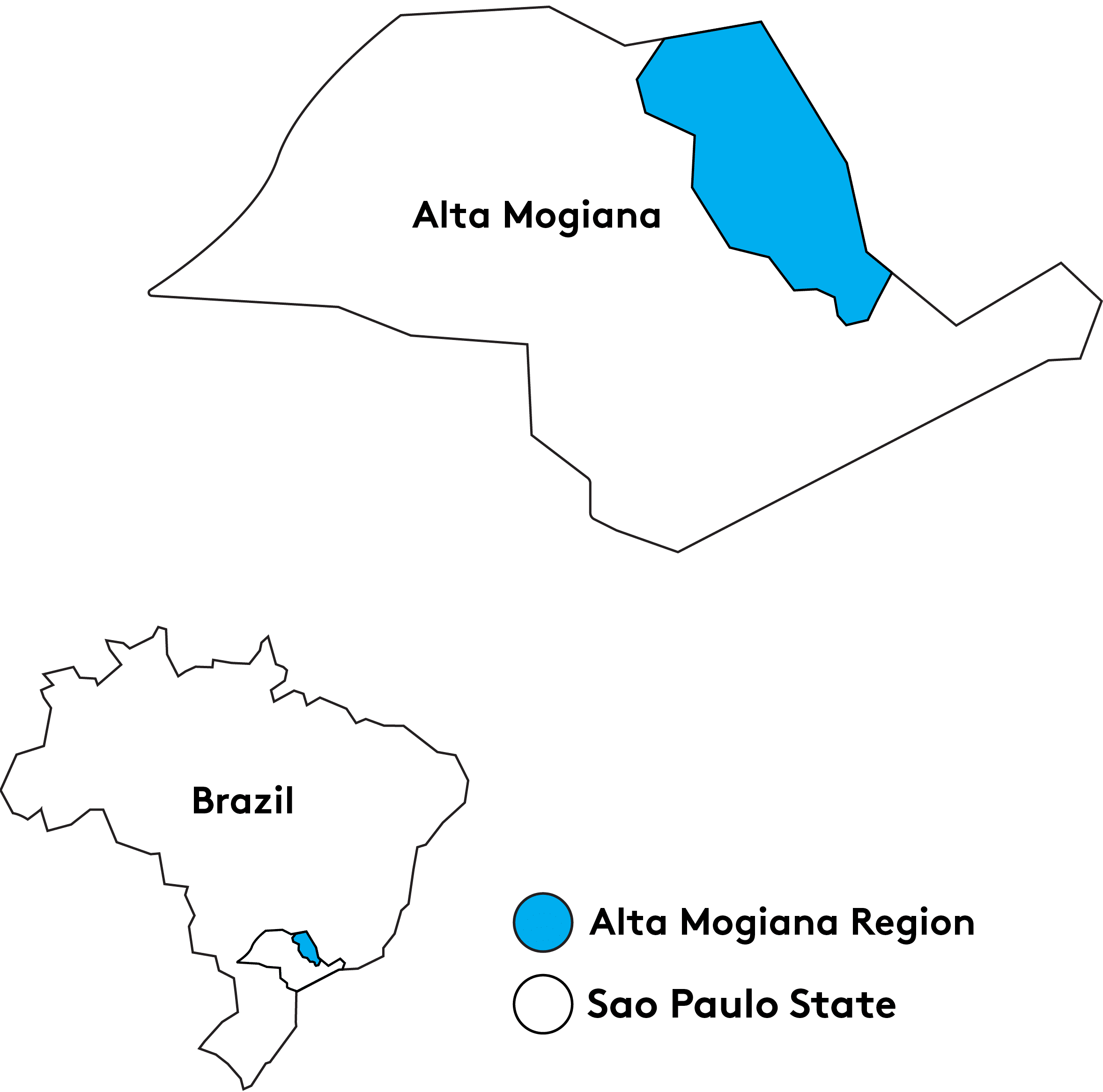The name of Fazenda Minamihara comes from the last name of the Japanese family who arrived to Brazil as immigrants in the 1930s to work with coffee. They began production in the state of Parana, and in 1973 moved to the Cristais Paulista municipality in the Franca region of São Paulo state, which presented several favorable conditions for growing coffee.
Fazenda Minamihara is dedicated to producing high quality coffees, investing in new technologies, and searching for more sustainable methods of production. An efficient process of harvest and post harvest selection separates coffees of the highest quality to offer to clients who value the flavor and originality of their coffee.
Furthermore, the farm does not use toxic pesticides or herbicides, only biological treatments. The production process does not degrade the land and at the same time elevates the quality. Coffee grows under the shade of avocado trees and the farm’s soil is balanced, giving special complexity to the final cup.
Fazenda Minamihara has more than 95 hectares of the farm’s total 150 hectares planted with a wide assortment of varieties, like Mundo Novo, Red and Yellow Catuaí, Obatã, Bourbon Amarelo, and Tupi, totaling 34,00 bags of coffee annually.
This lot of Selvagem coffee underwent Natural processing. Selvagem translates to “wild” coffee, noting the unclear provenance of this variety on the Minamihara property. Birds traveling from other areas roost in the property’s avocado trees, sometimes bringing with them seeds from other farms. When this Selvagem coffee first developed at Minamihara it was clear that it was different from any other variety on the farm, and after showing good results on the cupping table it has become an important component of the farm’s total coffee production.

